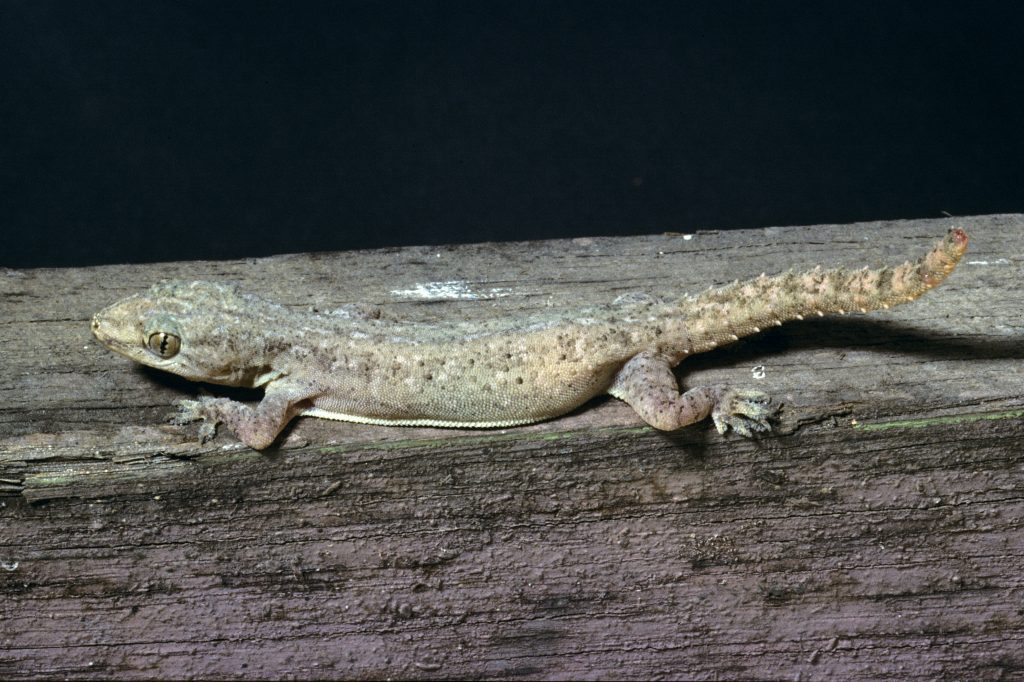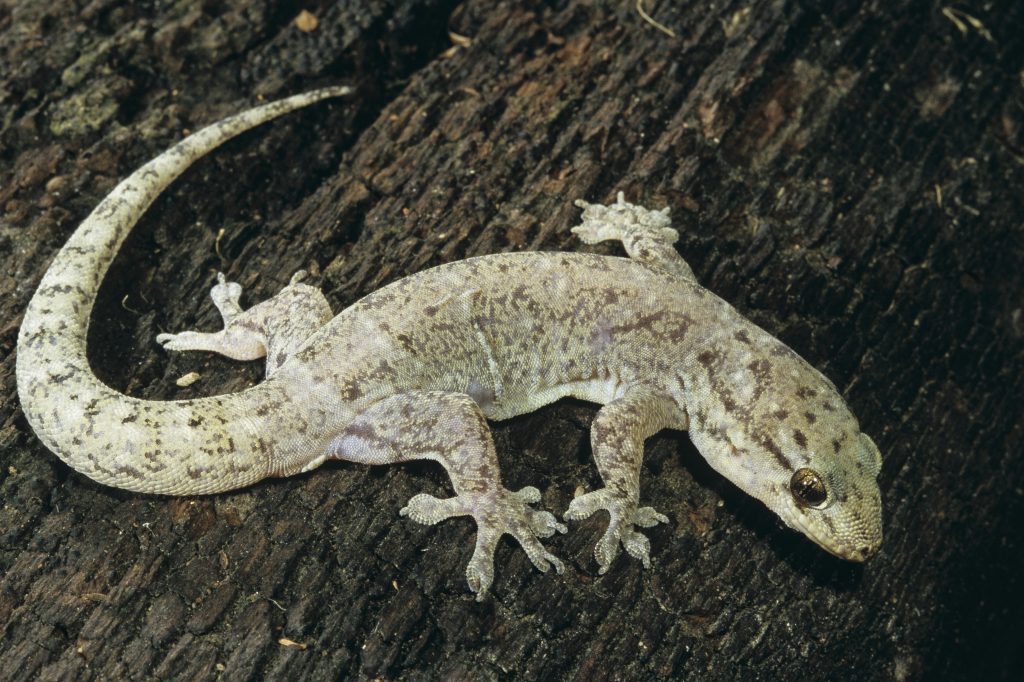Six native species and one invasive gecko are found in Brisbane. Of the natives, dubious dtella (Gehyra dubia) are common in outer western suburbs of Brisbane and look like Asian geckos (Hemidactylus frenatus). Dtella geckos have irregular darker mottling which becomes pale and almost pattern-less when hunting at night. Asian geckos also become pattern-less at night but are distinguished from dtella by a series of spines that run along the edge of the tail and lower back and their toes have claws.
There are three species of velvet geckos (Oedura species), the zigzag (O. rhombifer), robust (O. robusta) and spotted (O. tryoni) geckos. The robust velvet gecko is the most abundant of the three species, while the zigzag velvet gecko and spotted velvet gecko are uncommon. Stone geckos (Diplodactylus vittatus) and thick tailed (Underwoodisaurus milii) geckos can also be found in Brookfield but are uncommon.
At home, geckos were in most rooms in the house, running up walls and across ceilings. Leaving their tell-tale droppings behind pictures and occasionally on pillows. No problem, as they fed on insects in the house. However, late last year I was aware that I hadn’t seen a native gecko for a while, but started to hear the chuck-chuck-chuck sound of an Asian gecko, calling outside the house. I posted on the local Upper Brookfield Facebook page “Where have all the (native) geckos gone”? A quick survey from the local community produced a snapshot of some of the six species of native geckos described in “Wildlife of Greater Brisbane”. The most common were the velvet geckos, followed by dtella and the Asian gecko. The numbers described, ranged from “millions” to a few. So why are some folks knee deep in geckos and I’m just hearing one or two Asian geckos and no longer seeing any natives. The Asian gecko is a successful invasive reptile. The female lays two eggs every four to six weeks and can breed all year round. Once established they frequently become the most prevalent and widespread species, often at the expense of native species. Some of our community members seek out the Asian geckos at night and remove them so the native geckos can re-establish. Some studies suggest that the Asian gecko is a benign threat and unlikely to become an environmental pest, but others claim they can spread to bushland habitats and throughout Australia.
I live in hope of the tell-tale signs on our pillows!
Phil Bird



